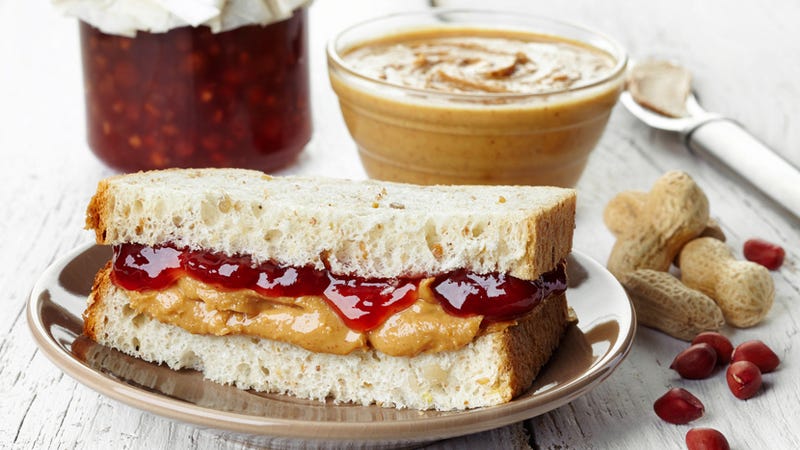![By Dan4th Nicholas from Cambridge, MA, USA (060521peanuts) [CC BY 2.0 (http://creativecommons.org/licenses/by/2.0)], via Wikimedia Commons](https://selfreliancecentral.com/wp-content/uploads/2017/01/Nut_warning_1-300x225.jpg)
Personally, I never take any notice of government advice over food. I may heed a listeria warning or cesium fallout level, but that’s about it. They are consistently, absolutely wrong with dietary advice. I’ve always followed my father’s advice about food and exercise: do as a caveman does. Don’t race walk, run, make your own meals from meat and veggies and go easy on the sugar. (Actually, I fail quite a lot on chocolate and red wine, but my intentions are good!) I never, ever bought into the cholesterol BS. How could eggs and shrimp possibly be bad for us? How could milk and butter be worse than margarine? Never made sense to me, so I ignored it.
I wasn’t raised in a peanut culture and I was lucky not to be allergic when I got to eat them (few people were allergic to stuff when I was a kid) but I always doubted the advice that small children should not eat them. They eat them right the way across Africa (where they are called groundnuts) and all through Asia and we don’t hear of the anaphylactic episodes that American kids have. You know the ones I mean, where kids are so sensitive that other kids can’t have peanut butter sandwiches because Annie will die if the molecules reach her?
For decades, the government’s advice has been to refrain from giving babies and young children peanuts and foodstuffs containing peanuts because it would mess with their auto-immune system.
TURNS OUT THEY ARE 100% WRONG
As reported in Gizmodo.com
It now appears that the peanut guidelines put out by the American Academy of Pediatrics (AAP) in 2000 were a colossal mistake. At the time, parents were told to refrain from feeding peanuts and peanut products to their children until the age of three, to avoid life-threatening allergic reactions—but this injunction seems to have backfired. Over the past two decades, the prevalence of peanut allergies in the United States has quadrupled, growing from 0.4 percent in 1997 to 1.4 percent in 2008, and to more than two percent in 2010. It has become the leading cause of food-related anaphylaxis and death in the United States.
A 2015 study published in the New England Journal of Medicine offered some of the most compelling evidence that early exposure to peanuts is critical for avoiding allergies later on. In a clinical trial involving more than 600 infants, NIH researchers found that early exposure led to an 81 percent reduction in the onset of peanut allergies among infants at high risk. (more)
How many millions of dollars were spend spreading the wrong information? How many children have developed deadly peanut allergies? How many lives have been lost?
So here’s the new deal according to the NIH’s National Institute of Allergy and Infectious Diseases (NIAID):
- Infants deemed at high risk of developing peanut allergies (i.e. they already have severe eczema, egg allergy or both) should have peanut-containing foods introduced into their diets at an age as early as four to six months. This should be done in consultation with a health care provider.
- Infants with mild or moderate eczema (a set of chronic skin conditions caused by inflammation, and a condition linked to food allergies) should have peanut-containing foods introduced into their diets around 6 months of age.
- Infants without eczema or any food allergy should have peanut-containing foods freely introduced into their diets.
- The NIAID says that all infants, regardless of which category they fit into, should start solid foods before they’re introduced to peanut-containing foods.
But who cares what they say? Can you say “devalued information source?”
More reading
Depriving Infants Of Peanut Products May Have Been A Colossal Mistake
For years, parents have been told to withhold peanuts from their children until the age of three,…Read more on io9.gizmodo.com

